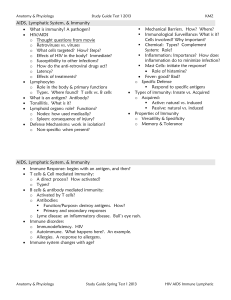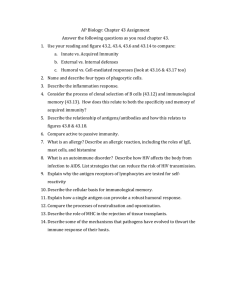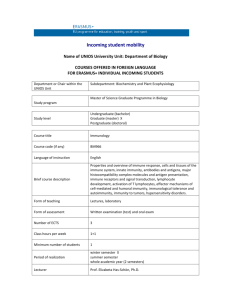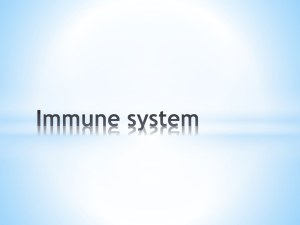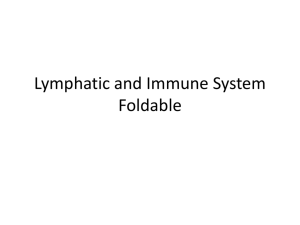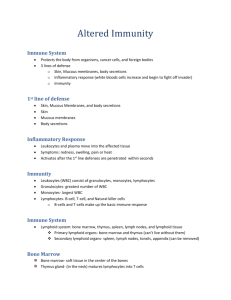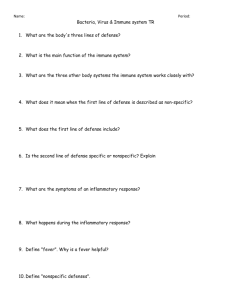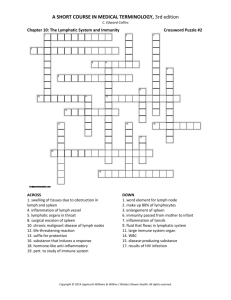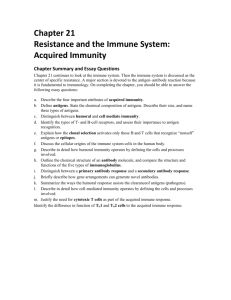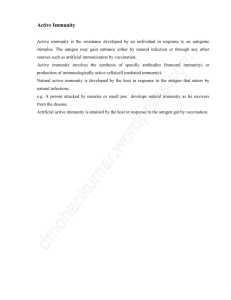Characteristics of Living Things (Essay
advertisement
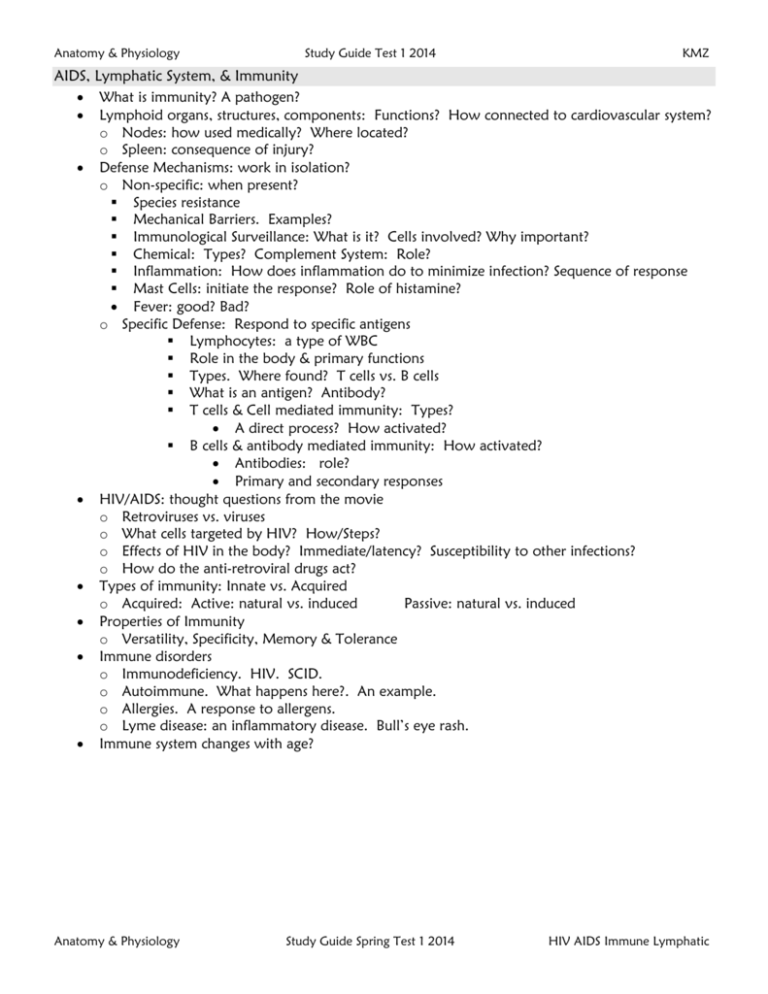
Anatomy & Physiology Study Guide Test 1 2014 KMZ AIDS, Lymphatic System, & Immunity What is immunity? A pathogen? Lymphoid organs, structures, components: Functions? How connected to cardiovascular system? o Nodes: how used medically? Where located? o Spleen: consequence of injury? Defense Mechanisms: work in isolation? o Non-specific: when present? Species resistance Mechanical Barriers. Examples? Immunological Surveillance: What is it? Cells involved? Why important? Chemical: Types? Complement System: Role? Inflammation: How does inflammation do to minimize infection? Sequence of response Mast Cells: initiate the response? Role of histamine? Fever: good? Bad? o Specific Defense: Respond to specific antigens Lymphocytes: a type of WBC Role in the body & primary functions Types. Where found? T cells vs. B cells What is an antigen? Antibody? T cells & Cell mediated immunity: Types? A direct process? How activated? B cells & antibody mediated immunity: How activated? Antibodies: role? Primary and secondary responses HIV/AIDS: thought questions from the movie o Retroviruses vs. viruses o What cells targeted by HIV? How/Steps? o Effects of HIV in the body? Immediate/latency? Susceptibility to other infections? o How do the anti-retroviral drugs act? Types of immunity: Innate vs. Acquired o Acquired: Active: natural vs. induced Passive: natural vs. induced Properties of Immunity o Versatility, Specificity, Memory & Tolerance Immune disorders o Immunodeficiency. HIV. SCID. o Autoimmune. What happens here?. An example. o Allergies. A response to allergens. o Lyme disease: an inflammatory disease. Bull’s eye rash. Immune system changes with age? Anatomy & Physiology Study Guide Spring Test 1 2014 HIV AIDS Immune Lymphatic
